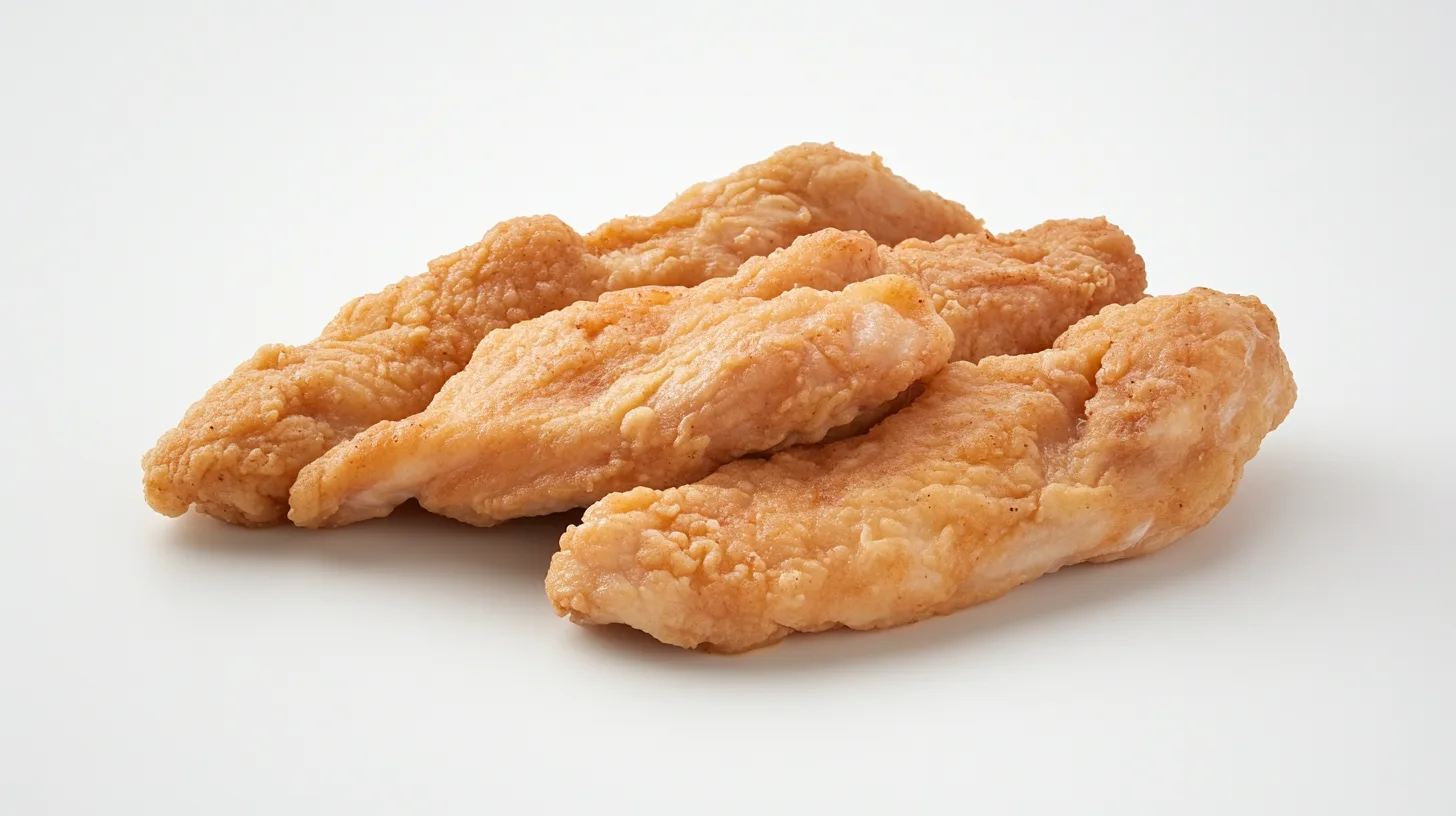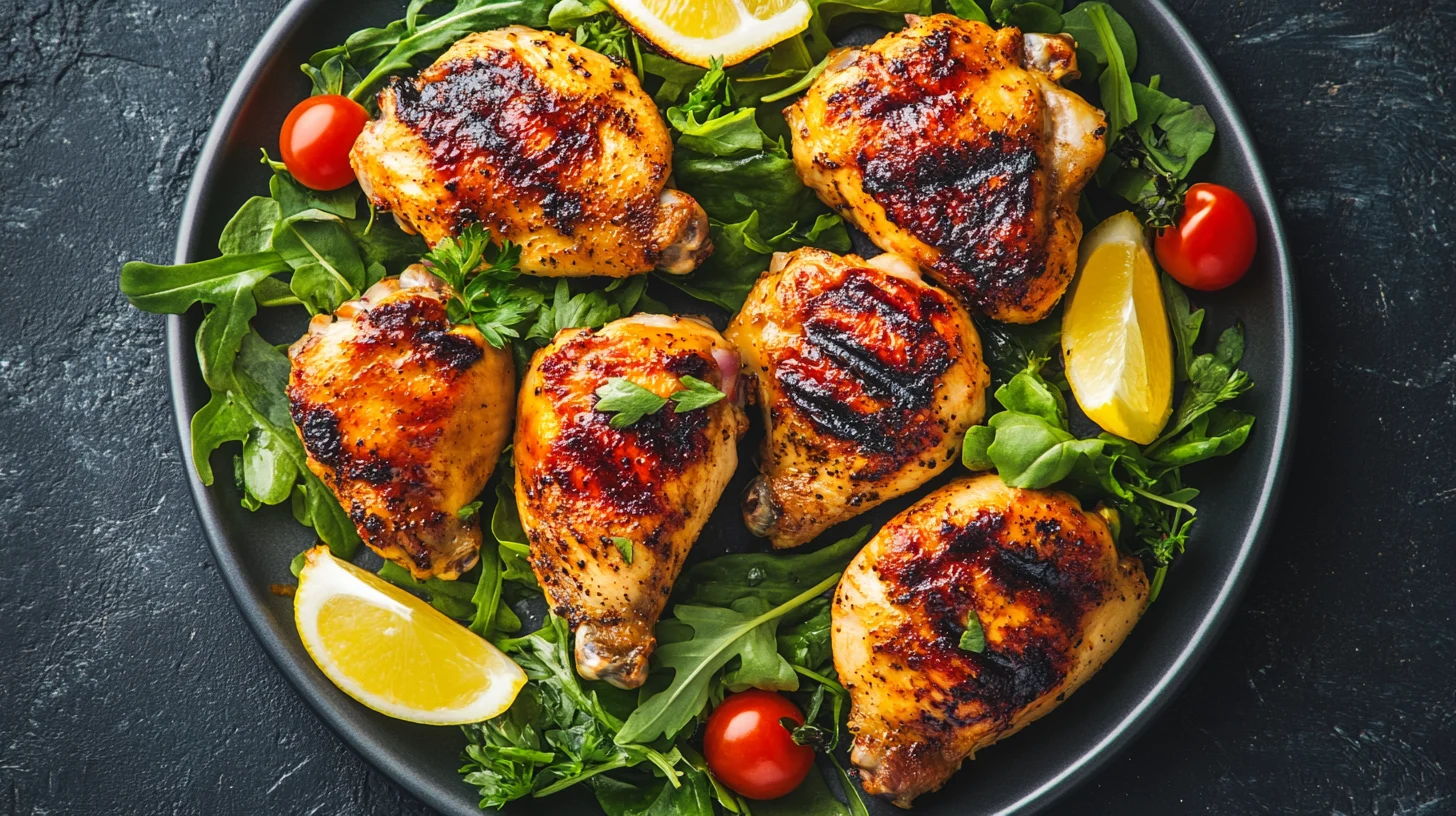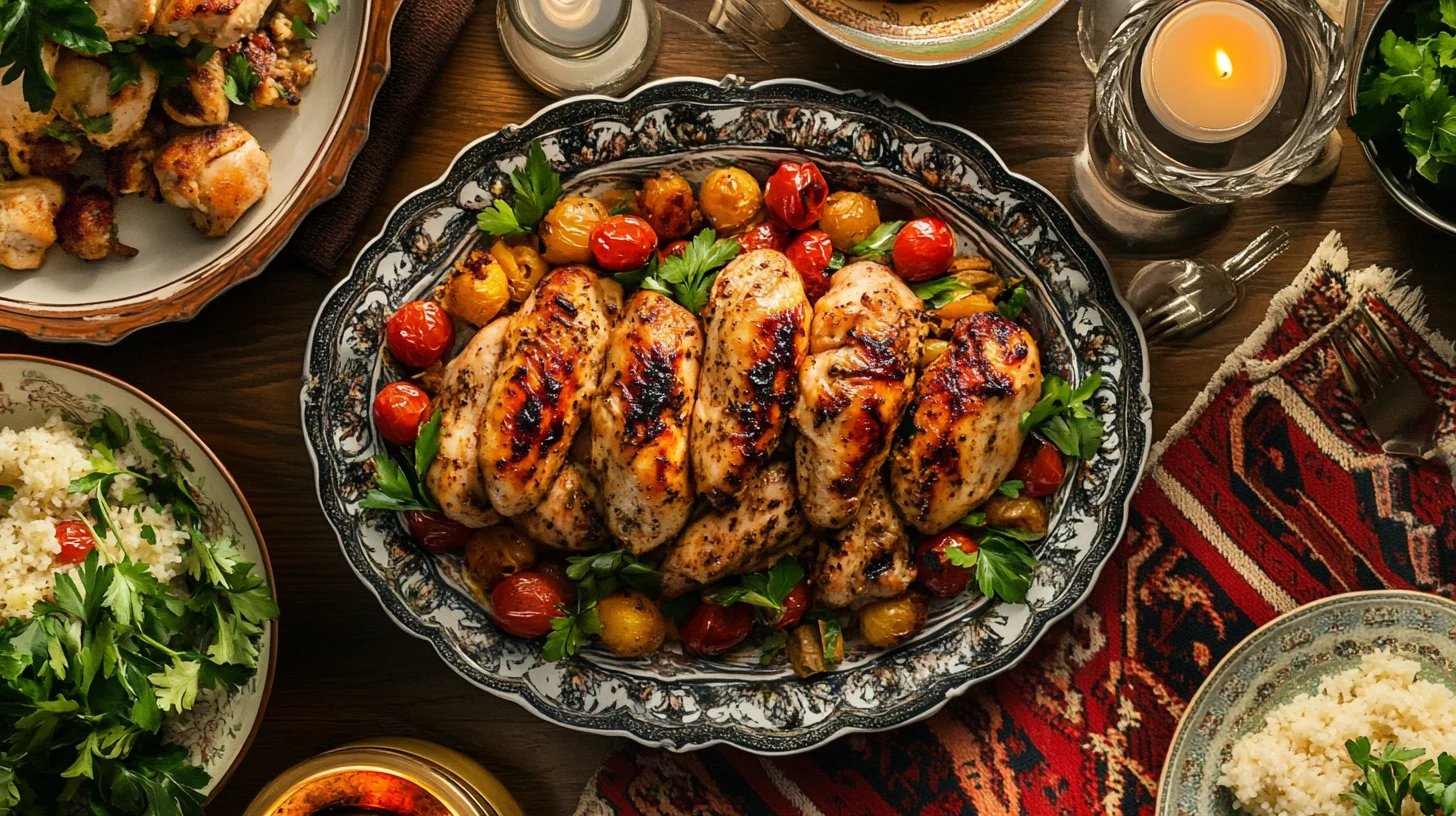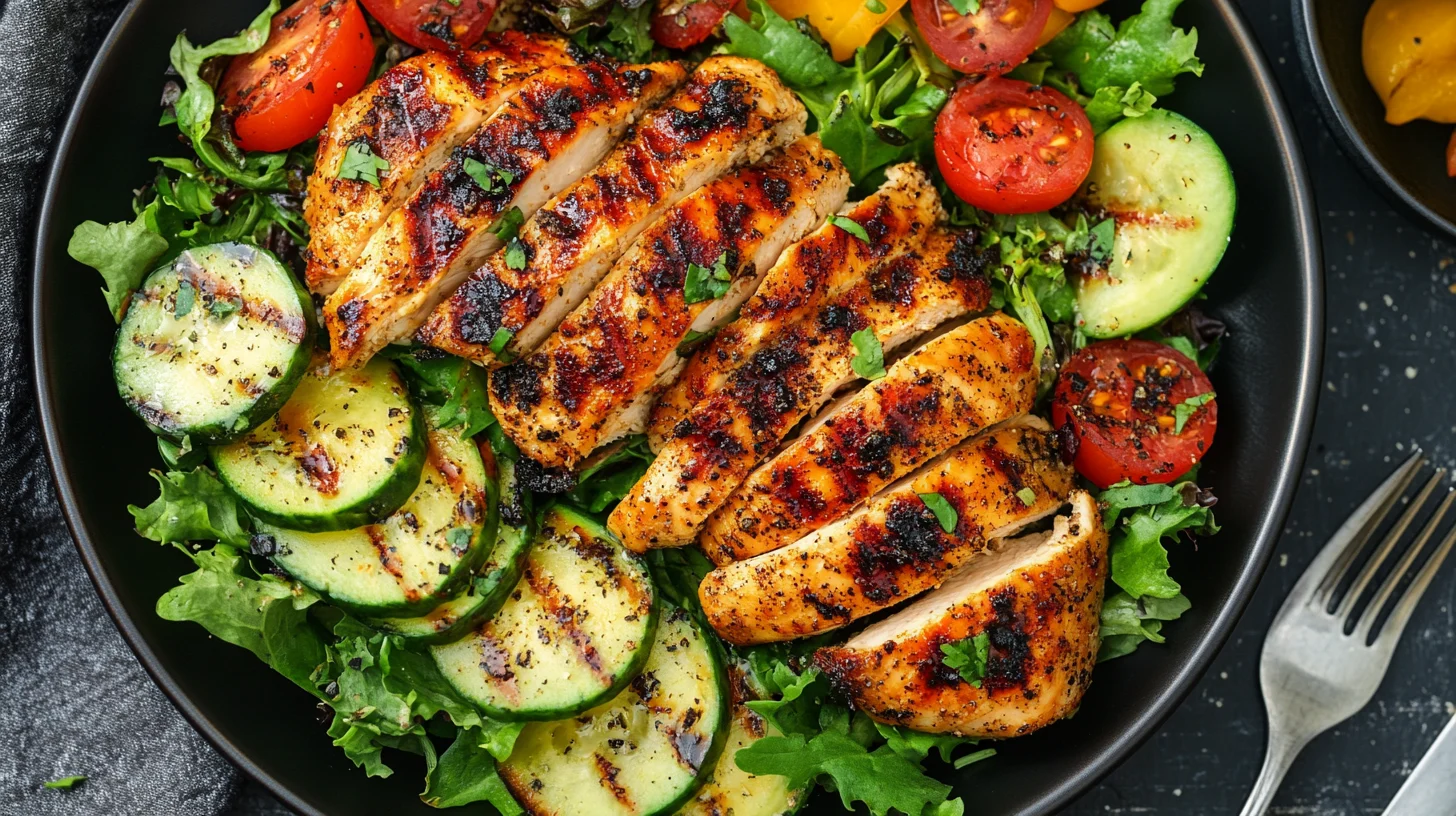Introduction
Cooking chicken that is tender and juicy is an essential skill for any home cook. Unfortunately, it’s easy to end up with dry, tough meat if you don’t follow the right techniques. With a few simple adjustments to your preparation and cooking methods, you can elevate any chicken dish. This guide on Secrets to Making Chicken Tender and Juicy Every Time provides actionable tips and proven methods to ensure perfectly cooked chicken that’s full of flavor.
Whether you’re grilling, baking, or pan-searing, these techniques will help you achieve restaurant-quality results. Let’s dive into the essential steps to ensure your chicken is always tender, juicy, and delicious.
For beginners, trying the Easy Galena Chicken Recipe is a great way to practice these tips while achieving a delicious homemade dish.
Why Tender and Juicy Chicken Matters in Cooking
Tender and juicy chicken is not just about taste; it also enhances the overall dining experience. Dry, overcooked chicken can ruin even the most flavorful recipes, while moist and tender chicken elevates the dish.
- Enhanced Flavor Absorption: Juicy chicken retains the flavors of marinades, spices, and seasonings better than dry meat.
- Better Texture: Tender chicken has a pleasant, succulent texture that is more satisfying to eat.
- Versatility: Properly cooked chicken is easier to pair with various side dishes, sauces, and salads.
- Improved Nutrition: Juicy chicken retains more of its natural moisture and nutrients, making it healthier.
By focusing on these factors, you’ll understand the importance of mastering the Secrets to Making Chicken Tender and Juicy Every Time.
For a deeper dive into why texture and flavor matter, check out How to Cook Chicken Juicy and Tender Every Time.

Choosing the Right Cut of Chicken for Juicy Results
Not all chicken cuts are created equal when it comes to tenderness and juiciness. Selecting the right cut is a crucial first step.
- Chicken Thighs: Naturally more flavorful and forgiving to cook, chicken thighs retain moisture even with prolonged cooking.
- Chicken Breasts: While lean, they can remain tender if cooked carefully or marinated. Ideal for baking or grilling.
- Drumsticks and Wings: These cuts have higher fat content, which helps maintain juiciness. Perfect for roasting or frying.
- Whole Chicken: Cooking a whole chicken locks in moisture and allows for even seasoning throughout.
Choosing the right cut is a foundational step in mastering the Secrets to Making Chicken Tender and Juicy Every Time.
For inspiration, try the Easy Forgotten Chicken Recipe for slow-cooking chicken thighs or drumsticks with rich flavors.
The Role of Freshness in Tender Chicken
Fresh chicken is essential for achieving tender and juicy results. The quality of your chicken can significantly impact the final dish.
- Look for Freshness Indicators: Check for firm texture, a neutral smell, and pinkish flesh. Avoid chicken that has a slimy surface or off-putting odor.
- Choose Organic or Free-Range Options: These chickens are often raised under better conditions, resulting in more flavorful and tender meat.
- Buy from a Reliable Source: Purchase chicken from trusted butchers or stores with high turnover to ensure freshness.
- Cook It Promptly: Fresh chicken should be cooked within 1–2 days of purchase or frozen to maintain its quality.
Focusing on freshness is one of the easiest ways to implement the Secrets to Making Chicken Tender and Juicy Every Time in your cooking routine.
Buying quality chicken from reliable sources enhances your chances of success, as detailed in How to Perfectly Cook Large Pieces of Chicken Every Time.
How to Properly Prepare Chicken Before Cooking
Preparation is key to ensuring chicken stays tender and juicy during cooking. Follow these steps to set yourself up for success:
- Trim Excess Fat and Skin: Use a sharp knife to remove any unwanted parts, leaving just enough skin to retain moisture.
- Pat the Chicken Dry: Moisture on the surface can prevent proper browning. Use paper towels to pat the chicken dry before seasoning.
- Season Generously: Apply salt and pepper liberally to the chicken, including under the skin for maximum flavor penetration.
- Bring to Room Temperature: Allow the chicken to sit at room temperature for 15–20 minutes before cooking to ensure even cooking.
Proper preparation lays the foundation for mastering the Secrets to Making Chicken Tender and Juicy Every Time.

Brining: A Proven Method for Juicy Chicken
It is one of the most effective techniques for ensuring chicken stays juicy, especially when cooking larger pieces or whole birds.
- What is Brining? Brining involves soaking the chicken in a saltwater solution to enhance its moisture retention and flavor.
- How to Make a Basic Brine: Combine 1/4 cup of salt with 4 cups of water. Add optional ingredients like sugar, garlic, or herbs for extra flavor.
- How Long to Brine: Smaller cuts like breasts need 30 minutes to 1 hour, while whole chickens benefit from 4–6 hours or overnight.
- Rinse and Dry Before Cooking: Always rinse off excess brine and pat the chicken dry to ensure a crisp exterior.
The Power of Marinades in Tenderizing Chicken
Marinating chicken is another excellent way to enhance its tenderness and flavor. A well-balanced marinade not only adds depth but also helps prevent dryness.
- Key Marinade Ingredients:
- Acids: Lemon juice, vinegar, or yogurt break down proteins, making the chicken more tender.
- Oils: Olive oil or canola oil helps carry flavors and keeps the meat moist.
- Spices and Herbs: Garlic, rosemary, paprika, and thyme add layers of flavor.
- How to Marinate:
- Place the chicken in a resealable bag or a glass dish.
- Pour the marinade over the chicken, ensuring even coverage.
- Marinate in the refrigerator for at least 30 minutes, or up to 24 hours for larger cuts.
By mastering marinades, you’ll fully unlock the Secrets to Making Chicken Tender and Juicy Every Time.
Using Proper Cooking Temperatures to Avoid Dryness
Cooking chicken at the right temperature is essential for preventing dryness while ensuring it’s safe to eat. Overcooking is one of the most common mistakes, but it’s easily avoidable with these tips:
- Use a Meat Thermometer: This is the most reliable way to check doneness. Insert the thermometer into the thickest part of the chicken, avoiding the bone.
- Ideal Temperatures:
- Chicken breasts: 165°F (74°C)
- Thighs and drumsticks: 175°F (79°C)
- Ideal Temperatures:
- Cook Over Medium Heat: Avoid excessively high heat, which can cause the exterior to burn while the interior remains undercooked.
- Rest After Cooking: Allow the chicken to rest for 5–10 minutes to let the juices redistribute evenly.
By paying attention to temperature, you’ll master the Secrets to Making Chicken Tender and Juicy Every Time and never serve dry chicken again.
How to Sear Chicken Without Losing Moisture
Searing chicken is an essential technique for achieving a golden crust while keeping the meat tender and juicy. However, it’s easy to lose moisture during this process if not done correctly. Follow these tips to master the Secrets to Making Chicken Tender and Juicy Every Time when searing:
- Preheat the Pan Properly: Use a cast-iron skillet or heavy-bottomed pan and preheat it over medium-high heat to create even browning.
- Pat Chicken Dry: Excess moisture on the chicken will cause steaming instead of searing. Use paper towels to dry the surface thoroughly.
- Use High-Smoke Point Oils: Oils like avocado or grapeseed oil are ideal for high-heat searing without burning.
- Season Right Before Cooking: Salt draws out moisture over time, so season the chicken just before placing it in the pan.
- Flip Only Once: Allow the chicken to cook undisturbed for 3–5 minutes per side to form a crust.
By following these steps, you’ll achieve a beautifully seared chicken while mastering the Secrets to Making Chicken Tender and Juicy Every Time.

Baking Techniques for Juicy and Tender Chicken
Baking chicken is a convenient and reliable way to achieve tender, juicy results, but it requires attention to detail. When done correctly, baked chicken retains moisture and develops rich flavors.
- Preheat the Oven: Always preheat your oven to 375°F–400°F for even cooking.
- Use a Baking Dish with Sides: A shallow dish helps distribute heat evenly while keeping the chicken moist.
- Add Moisture: For extra juiciness, bake chicken with a small amount of chicken broth or a marinade in the pan.
- Cover with Foil (Optional): If you’re baking large pieces, cover them with foil for the first half of the cooking time, then uncover for a crispy finish.
- Check the Temperature: Use a meat thermometer to ensure the internal temperature reaches 165°F for breasts or 175°F for thighs.
By incorporating these techniques, you’ll perfect the art of baking as part of the Secrets to Making Chicken Tender and Juicy Every Time.
Grilling Tips for Perfectly Cooked Chicken Every Time
Grilling is a fantastic way to cook chicken with smoky flavors and a slightly charred exterior. However, it can easily result in dryness if not done properly. Here are some tips to achieve juicy, tender chicken on the grill:
- Marinate in Advance: Use marinades with oil and acidic components like lemon juice or vinegar to tenderize the chicken. Let it marinate for at least 2–4 hours.
- Preheat the Grill: Preheat the grill to medium-high heat and oil the grates to prevent sticking.
- Use Indirect Heat: For thick cuts, start with indirect heat to cook through, then move to direct heat for a charred finish.
- Baste Regularly: Baste with marinade or a glaze during grilling to maintain moisture and add flavor.
- Check Doneness Carefully: Use a meat thermometer to ensure the chicken reaches 165°F without overcooking.
These grilling tips will ensure you consistently apply the Secrets to Making Chicken Tender and Juicy Every Time to your outdoor cooking.
The Importance of Resting Chicken After Cooking
Resting chicken after cooking is a simple yet crucial step in preserving its juiciness and tenderness. Skipping this step can result in dry, unevenly textured meat.
- Why Resting is Essential: Cooking forces juices to the center of the meat. Resting allows these juices to redistribute evenly throughout the chicken.
- How to Rest Chicken Properly: Place the cooked chicken on a cutting board and loosely tent it with foil for 5–10 minutes. This retains heat without making the skin soggy.
- Improved Flavor and Texture: Resting ensures each bite is juicy and prevents the meat from becoming stringy.
Incorporating this final step into your routine is one of the easiest Secrets to Making Chicken Tender and Juicy Every Time.
Common Mistakes to Avoid When Cooking Chicken
Even the best techniques can fall short if common mistakes aren’t addressed. Avoiding these errors ensures success every time you cook chicken:
- Skipping Preparation: Not trimming, drying, or seasoning chicken properly leads to uneven cooking or bland flavor.
- Overcooking: Always use a meat thermometer to avoid dry, overcooked chicken. The ideal internal temperature is 165°F.
- Using High Heat for Everything: High heat can scorch the outside while leaving the inside raw. Adjust heat levels based on the cooking method.
- Skipping Rest Time: Cutting into chicken immediately after cooking causes juices to escape, leaving it dry.
- Underseasoning: Large cuts require generous seasoning to infuse flavor throughout the meat.
By avoiding these mistakes, you’ll consistently master the Secrets to Making Chicken Tender and Juicy Every Time.

FAQ: Troubleshooting Tough or Dry Chicken
If your chicken isn’t turning out as expected, here are answers to frequently asked questions about achieving tender and juicy results:
- Why is my chicken tough?
Overcooking is the most common reason. Use a meat thermometer to ensure you don’t exceed the recommended temperature. - How can I fix dry chicken?
Slice it thinly and simmer it in a flavorful sauce or broth to reintroduce moisture. - What’s the best way to prevent dryness when reheating chicken?
Add a splash of broth and reheat in the oven or stovetop over low heat to preserve moisture. - Can brining or marinating always guarantee juicy chicken?
While brining and marinating significantly improve texture, proper cooking techniques are equally important.
These FAQs address common concerns and reinforce the Secrets to Making Chicken Tender and Juicy Every Time.
Final Tips for Making Chicken Tender and Juicy Every Time
To summarize, here are some final tips to ensure consistently tender and juicy chicken:
- Plan Ahead: Marinate or brine your chicken in advance to enhance flavor and texture.
- Use the Right Tools: A meat thermometer is essential for avoiding overcooking.
- Experiment with Methods: Try different techniques like grilling, baking, or slow cooking to find what works best for each cut.
- Rest the Chicken: Never skip the resting step—it’s critical for juiciness.
- Season Generously: Bold flavors and spices complement the chicken’s natural taste.
By applying these tips, you’ll confidently master the Secrets to Making Chicken Tender and Juicy Every Time and enjoy delicious chicken dishes every time you cook.
Pair your chicken dishes with complementary sides like Sweet Potato Brulee or Beans and Cornbread to create unforgettable meals. Start applying these secrets today, and enjoy tender, juicy chicken every time you cook.

1 thought on “Secrets to Making Chicken Tender and Juicy Every Time”